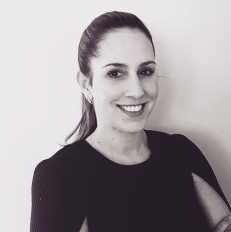
(Dispatches from the Field is a recurring feature designed to showcase the school’s commitment to fostering, through field education, fruitful relationships with organizations both in Boston and around the world that are providing critical services to those living at the margins of society. This edition features Yvonne Castaneda, who is now a Behavioral Health Clinician at East Boston Neighborhood Health Center.)
Student
Yvonne Castaneda
Agency Partner
East Boston Neighborhood Health Center (EBNHC)
Responsibilities at the Placement
The center serves a largely Latino population who are experiencing a wide range of health problems, and Castaneda is charged with offering behavioral integration therapy across all departments. “In health centers in the past,” Castaneda explains, “people who met with a primary care physician for an ailment and mentioned that they were feeling depressed and anxious would be recommended to a mental health care professional outside of the clinic. But there was no guarantee that person would seek out services. There’s so much stigma with accessing mental health support in Latino communities in particular, so this can be a real problem. Our job is to meet people where they are, offer brief counseling, and provide them with what they need in the moment.”
On Supervision
Castaneda’s boss at EBNHC is Raquel Castro, a leader who Castaneda calls “everything you would want in a supervisor” who offers her “the right amount of accountability, curiosity, and support … to address the problems we face an on a daily basis.”
What I Learned
Castaneda is a member of BCSSW’s Latino Leadership Initiative, a program that offers specialized coursework and training for Spanish speakers who aspire to work with Latino populations following completion of their MSW. Castaneda has been able to build upon her own experience as a Latina living in America, and her coursework through the LLI, to get the most out of her placement at EBNHC.
“Honestly, even as a person who is Latina, it has been eye-opening to recognize that so much of our world and our thinking is really based in the white experience,” explains Castaneda. “Even for myself, I have realized that my decisions and behaviors are geared very specifically for this Anglo-centric world. The LLI has provided me with a different lens for looking at this world.”
Castaneda explains that this perspective has helped her to work better in her placement, and to approach solutions with her clients in a more open manner. “I try not to make assumptions about what someone wants when I listen about a particular problem they might be dealing with,” she explains. “This is really important when offering therapy to a person.”
Career Aspirations
While Castaneda isn’t 100 percent sure whether she’ll pursue a macro or clinical career following her graduation this May, she knows that she definitely wants to work with Latino populations. She says that her work in the LLI and at EBNHC has only strengthened this resolve, and she appreciates that she’s had the opportunity to engage in both clinical and macro decision-making at her placement.
“I think having a leadership background lends itself to macro thinking,” she explains. “During meetings at the health center I enjoy asking high level questions on things like … creating action plans to make an organization more efficient. On the flipside, I absolutely love being present with someone when they need to talk about issues taking place in their life. It’s been great to be able to be exposed to these different kinds of situations through field.


